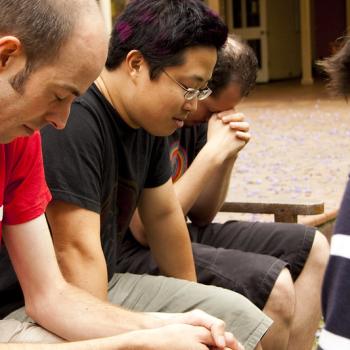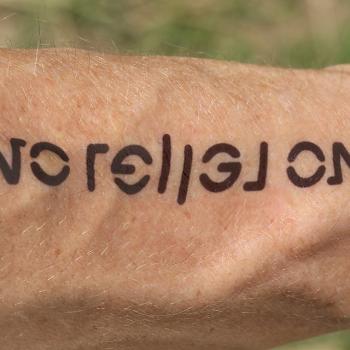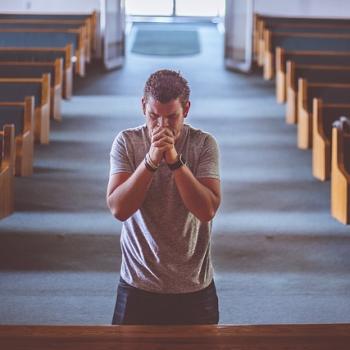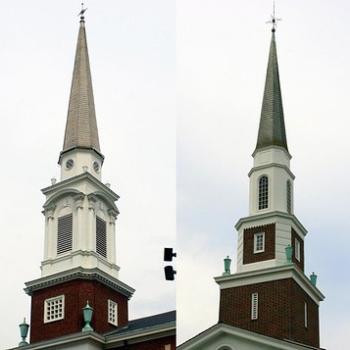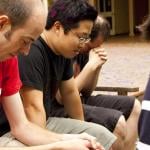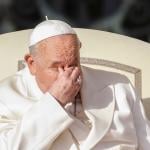The 2019 Nobel Peace Prize was awarded to Abiy Ahmed Ali, the Prime Minister of Ethiopia. He resolved Ethiopia’s 20-year war with Eritrea, which killed some 80,000 people. He has made progress in mediating an end to the war in Sudan. And he has been implementing democratic reforms in Ethiopia.
According to his Wikipedia article, Abiy, who raised a Muslim, “is a devout Evangelical Pentecostal Christian of the Full Gospel Believers’ Church.”
That article links to a story from last year in the British periodical The Economist (free registration required) entitled God wants Ethiopians to prosper: The prime minister and many of his closest allies follow a fast-growing strain of Christianity. Notice that through Abiye is a Pentecostal, the term “Pente” is used in Ethiopia to refer to all evangelicals, presumably including the Lutherans in Mekane Yesus, whose 9 million members make it one of the largest–if not the largest–Lutheran church in the world. From The Economist (free registration required):
“Pentes”, as both Pentecostals and more staid Protestants are known in Ethiopia, are on the march.
Ethiopia’s new prime minister, Abiy Ahmed, is a devout Pentecostal. So was his predecessor, Hailemariam Desalegn. Lemma Megersa, the prime minister’s closest ally and president of Oromia, Ethiopia’s most populous region, is a board member of Assemblies of God, the church which hosted Nigusie in Addis Ababa in October. The rise of the Oromo wing of the ruling coalition, the Ethiopian People’s Revolutionary Democratic Front (EPRDF), has brought even more Pentes into the highest ranks of government. . . .
In the 1960s Pentes were less than 1% of the national population. Today they may be as much as a quarter, packed into cities and among the fast-growing rural populations in the south and west. . . .
Before the EPRDF introduced freedom of religion in 1995 the Pentes were fiercely persecuted by the state. When Abiy’s church, Full Gospel Believers, tried to register in 1967, its application was rejected by the then emperor, Haile Selassie. Arrests and beatings followed, worsening under the communist regime known as the Derg. In 1979 some church members were publicly flogged as punishment for not chanting socialist slogans. Popular hostility was rife, too. When one of Nigusie’s children died in infancy, some of his neighbours in southern Ethiopia dug up the grave and hung the corpse on a post as a warning to others.
Even during those dark times Pentecostalism won converts. In much of Oromia it has also grown with the rise of Oromo nationalism, in part because sermons are conducted in the local language, Afan Oromo, rather than Ge’ez, the ancient language of Orthodox liturgy (akin to Latin for Catholics). Most of the founders of the Oromo Liberation Front, a secessionist rebel group, were Pentes. . . .
The former guerrillas who used to run the EPRD drew a sharp line between religion and state when they came to power in 1991. But religion seems slowly to be returning to the public sphere. Although there are few signs that Abiy favours Pentes at the expense of other faiths, religion seems to have shaped his politics. Many of his sermon-like speeches about love and forgiveness invoke God.
But wait! I thought “evangelical” now means a religious person who supports Donald Trump. There are people in Africa who believe in the Gospel and the Bible? And they are involved in politics? Talking about love and forgiveness and winning Nobel Peace Prizes?
The American stereotypes about “evangelicals” do not apply globally, where evangelical Christians far outnumber their American counterparts. Some Americans who believe in the Gospel and the Bible are saying that the term has become so discredited that we should stop using it. Maybe they could use “Pente.” Or, better yet, “Mekane Yesus,” which means “place of Jesus.”
Photo of Ethiopian Prime Minister Abiy Ahmed Ali by Aron Simeneh – https://www.flickr.com/photos/145325932@N03/31058066597/in/dateposted-public/, CC0, https://commons.wikimedia.org/w/index.php?curid=83002264 via Wikimedia Commons









